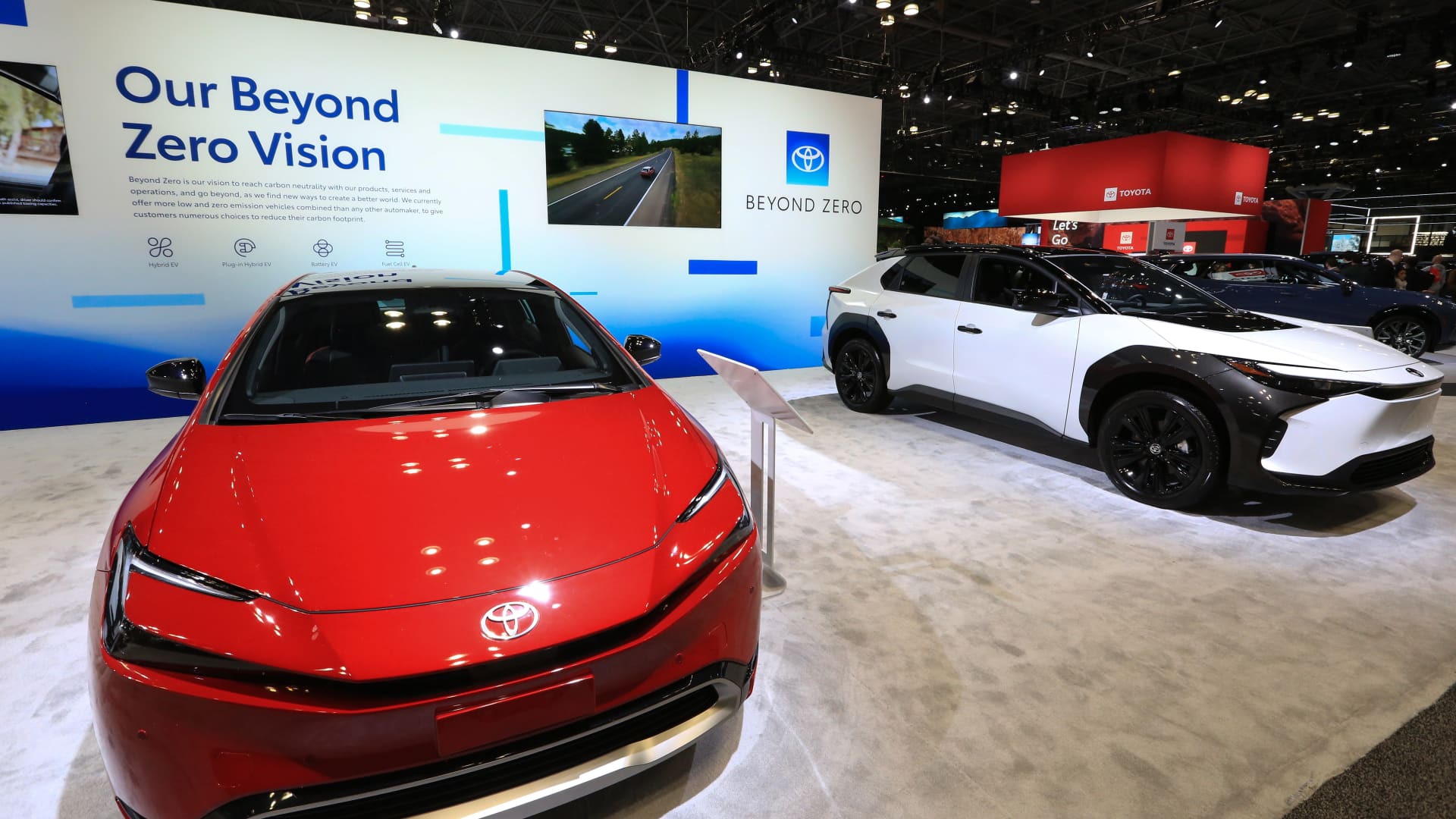As the automotive industry faces a tumultuous transition towards electric vehicles (EVs), Toyota is taking a decisive step forward. The company has set ambitious goals to significantly expand its plug-in vehicle lineup, aiming to redefine its strategy and capitalize on emerging market opportunities. Amidst uncertainty, Toyota’s bold vision seeks not only to innovate but to lead in the evolving landscape of sustainable transportation.
Understanding the Current Landscape of Electric Vehicles
The electric vehicle market is experiencing rapid transformation, driven by technological advancements, changing consumer preferences, and regulatory pressures. According to a report by the International Energy Agency (IEA), global electric car sales surpassed 10 million units in 2022, marking a growth of 55% from the previous year. This momentum is fueled by the urgent need to address climate change and reduce carbon emissions.
However, the journey is not without challenges. Traditional automakers are grappling with supply chain disruptions, rising battery costs, and fierce competition from new entrants in the EV space. Notably, Tesla continues to dominate the market, while legacy automakers like Ford and General Motors are aggressively ramping up their electric offerings.
Toyota’s Strategic Repositioning
In response to this shifting landscape, Toyota is revisiting its approach to electric mobility. Historically, the company has been cautious about fully embracing battery electric vehicles (BEVs), focusing instead on hybrid technology. However, recognizing the need for a robust plug-in vehicle strategy, Toyota has announced plans to invest 70 billion USD in electrification by 2030, with a goal of launching at least 30 new battery electric models by 2030.
Key Components of Toyota’s Strategy
- Investment in R&D: Toyota is significantly increasing its research and development budget to advance battery technology, aiming to reduce costs and improve performance.
- Expanding Model Range: The company plans to diversify its offerings, including SUVs, sedans, and commercial vehicles, to cater to a broad audience.
- Collaboration with Industry Leaders: Toyota is exploring partnerships with tech companies and battery manufacturers to enhance its electric vehicle capabilities.
- Global Production Capacity: The automaker is investing in new manufacturing facilities and upgrading existing plants to meet the rising demand for electric vehicles.
Emerging Opportunities in the EV Market
Toyota’s renewed focus on plug-in vehicles positions the company to take advantage of several emerging trends in the automotive industry. Firstly, the growing consumer preference for sustainable transportation solutions is prompting automakers to innovate rapidly. Secondly, advancements in battery technology, such as solid-state batteries, promise to enhance vehicle range and charging speed, making EVs more appealing to a wider audience.
Moreover, governments worldwide are implementing stricter emissions regulations and providing incentives for electric vehicle adoption. For instance, in the United States, the Biden administration aims to have 50% of all new vehicle sales be electric by 2030. Such policies create a favorable environment for Toyota’s ambitious expansion plans.
Potential Challenges Ahead
Despite its strategic advantages, Toyota faces several hurdles in its quest for plug-in vehicle leadership. The ongoing global chip shortage poses a significant threat to production timelines, potentially delaying the rollout of new models. Furthermore, the competitive landscape is becoming increasingly crowded, with established names and startups alike vying for market share.
Additionally, consumer skepticism about battery electric vehicles remains a concern. While awareness is growing, many potential buyers still harbor doubts about range, charging infrastructure, and long-term reliability. Toyota must not only produce high-quality electric vehicles but also invest in marketing strategies to educate consumers and build trust.
Conclusion: A Path Forward
Toyota’s ambitious goals for plug-in vehicle expansion reflect a broader commitment to sustainability and innovation in the automotive industry. By strategically repositioning itself and investing in electrification, the company aims to redefine its legacy and meet the challenges posed by a rapidly evolving market.
As Toyota navigates this transformative period, its success will depend on its ability to adapt, innovate, and engage with consumers effectively. The road ahead may be fraught with challenges, but with a clear vision and substantial investment, Toyota is poised to make a significant impact in the world of electric mobility.
Call to Action
Stay informed about the latest developments in the automotive industry and Toyota’s electrification journey by subscribing to our newsletter or following us on social media. The future of transportation is electric, and you won’t want to miss a moment of it!
See more Business Focus Insider Team

